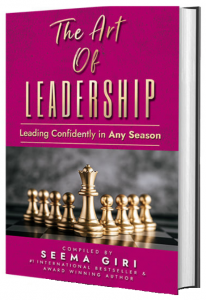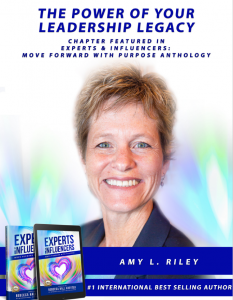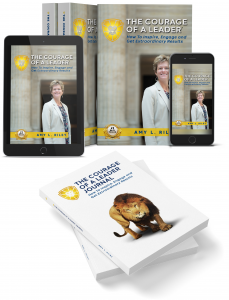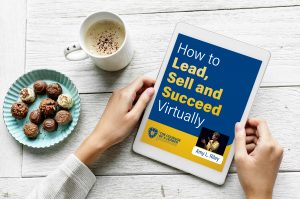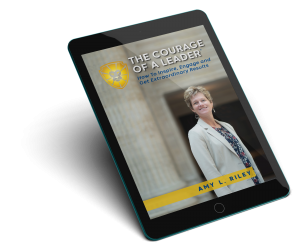Rob Waddell, an experienced business coach and marketing consultant, shares insights on how to inspire and engage teams during new initiatives. He emphasizes the need for a clear vision that communicates the “why” and highlights each person’s role in achieving it. Rob advises leaders to use consistent communication, celebrate small wins, and conduct regular reviews to sustain momentum. His approach combines structured processes with flexibility, encouraging leaders to foster a supportive environment where team members feel valued and motivated to contribute to shared goals.
Key Takeaways:
1. Involve the Team in the Vision: Ask for input from team members to create a shared vision that everyone feels part of, boosting ownership and enthusiasm.
2. Communicate Often and Clearly: Use consistent updates and transparent communication to keep everyone aligned and engaged throughout the project.
3. Celebrate Individual Contributions: Recognizing each person’s role in the success of the initiative increases motivation and team morale.
4. Establish Standard Processes: Implement standard operating procedures (SOPs) for key tasks to ensure consistency and efficiency, especially in dynamic environments.
5. Be Open to Change: Flexibility in approach is crucial; adjust plans as needed based on team feedback and project progress to stay agile and effective.
Resources Mentioned:
The Inspire Your Team to Greatness assessment (the Courage Assessment)
How can you inspire our team to be more proactive, take ownership and get more done?
You demonstrate and empower The Courage of a Leader. In my nearly 3 decades of work with leaders, I’ve discovered the 11 things that leaders do – even very well-intentioned leaders do – that kill productivity.
In less than 10 minutes, find out where you’re empowering and inadvertently kills productivity, and get a custom report that will tell you step by step what you need to have your team get more done.
https://www.courageofaleader.com/inspireyourteam/
About the Guest:
Rob Waddell is a seasoned, strategic business coach and marketing consultant with a passion for helping businesses unlock their full potential.
With 4 decades of experience working on global brands like McCain Foods and McVitie’s, VC-backed SME’s, and latterly, as a trusted advisor to on-line business entrepreneurs, Rob specializes in guiding leaders in navigating the current digital marketing landscape, aligning their personal and business goals, ensuring they’re well-positioned for future success
Rob’s collaborative approach is grounded in deep empathy for both the people and the processes that make businesses thrive.
He likens his coaching style to a ‘marketing whisperer’, sitting on the shoulder of business owners, personally supporting them to overcome challenges with leadership guidance and creative problem solving.
Rob’s motto: Life is too f**king short, NOT to LOVE what you do ❤️🔥
Contact details: am-consultants@outlook.com
Book Complimentary Call at https://bit.ly/Call-Rob
https://www.facebook.com/rob.waddell.101
About the Host:
Amy L. Riley is an internationally renowned speaker, author and consultant. She has over 2 decades of experience developing leaders at all levels. Her clients include Cisco Systems, Deloitte and Barclays.
As a trusted leadership coach and consultant, Amy has worked with hundreds of leaders one-on-one, and thousands more as part of a group, to fully step into their leadership, create amazing teams and achieve extraordinary results.
Amy’s most popular keynote speeches are:
· The Courage of a Leader: The Power of a Leadership Legacy
· The Courage of a Leader: Create a Competitive Advantage with Sustainable, Results-Producing Cross-System Collaboration
· The Courage of a Leader: Accelerate Trust with Your Team, Customers and Community
· The Courage of a Leader: How to Build a Happy and Successful Hybrid Team
Her new book is a #1 international best-seller and is entitled, The Courage of a Leader: How to Inspire, Engage and Get Extraordinary Results.
https://www.courageofaleader.com
https://www.linkedin.com/in/amyshoopriley
Thanks for listening!
Thanks so much for listening to The Courage of a Leader podcast! If you got inspired and/or got valuable leadership techniques you can use from this episode and think that others could benefit from listening, please share using the social media buttons on this page.
Do you have questions or feedback about this episode? Leave a comment in the section below!
Subscribe to the podcast
If you would like to get automatic updates of new The Courage of a Leader podcast episodes, you can subscribe to the podcast on Apple Podcasts. You can also subscribe in your favorite podcast app.
Leave us an Apple Podcasts review
Ratings and reviews from our listeners are extremely valuable to us and greatly appreciated. They help our podcast rank higher on Apple Podcasts, which helps us ignite The Courage of a Leader in more leaders! Please take a minute and leave an honest review on Apple Podcasts.
Teaser for next episode
In our next episode you will learn from Geoff Woods, Founder of AI Leadership, about how to use AI as a thought partner to elevate strategic thinking, focus on high-impact tasks, and make faster, smarter decisions.
Transcript
How do you truly engage your team members, and how do you get them to care about yet another project or initiative? My guest today, Rob Waddell, is a seasoned strategic business coach and marketing consultant, and we discuss how to inspire team members and get them focused and on board from project launch to project completion and beyond. I'm glad you're here to listen in.
Amy Riley:Welcome to the Courage of a Leader podcast. This is where you hear real life stories of top leaders achieving extraordinary results, and you get practical advice and techniques you can immediately apply for your own success. This is where you will get inspired and take bold, courageous action. I'm so glad you can join us. I'm your host. Amy Riley, now are you ready to step into the full power of your leadership and achieve the results you care about most? Let's ignite the Courage of a Leader.
Amy Riley:I really appreciate you being here today, Rob to record this episode for the Courage of a Leader podcast. Thank you for your time.
Rob Waddell:My pleasure. Love talking to you, so hopefully we can inspire some people have a good chat. Yes,
Amy Riley:that is what we are looking to do with this conversation, is to inspire and Rob, I talked to so many leaders who are searching for how to get their team members engaged and working with focus and purpose. And I talked to so many team members and leaders also right who feel like new programs, initiative, work streams, the new thing is being launched all the time. So how, when we're launching something new or launching the next phase, how do we inspire folks and get them on board and focused?
Rob Waddell:Yeah, it. I mean, it can be hard, because when we're in the day to day, we're kind of bogged down by what we've got to do. The most important thing, really, that I've learned over the years is take a step back and just like clear the decks and just blank sheet of paper, just think about a couple of key things. And the first thing, really, for me, is to is to kind of share your vision of what we're trying to do here. It doesn't matter. I mean, I've worked in in consumer products to launch your products to supermarkets, which means you're selling products to consumers. I work with our online entrepreneurs, where we are trying to launch an online product, launching a podcast, launching a software system, launching a new network, installed. It doesn't really matter what the thing is. For me, it's about helping the team to understand where you're going. I What is your vision for the result of what we're doing here? So workflows we're going to work more efficiently, which will free up your time, will be a way to communicate that. So really it's setting that out as share the vision, describe what you're trying to achieve in the end game, big picture stuff, not detail. Okay? And then it's really a case of helping people to understand. And one of the things I kind of preach, if you like, is it's like a machine, and everyone has a cog in the wheel. And the most important thing for me is to help everybody understand that their role is hugely important, no matter how small the element of the work that they do. Because it's the odd analogy. You're only as strong as the weakest link. So am I trying to get help everyone buy into we're working together because it's going to benefit the business. It's going to benefit us. Therefore, as employees or individuals or shareholders, that's it. You know, paint the picture of why you are doing this. Very
Amy Riley:good, very good. I want to underscore some of what you said, Rob, go to the blank sheet of paper and then share the vision where you're going. And I also heard you say, share the benefit, right? We want to improve this so we free up more of your time, so we're describing it, how it's going to work, how it's going to help at high level, yeah. And then second I'm hearing, how do we get people bought in? We tell them what's important about the work that they're doing, how how they're going to be able to contribute to the new future? Absolutely,
Rob Waddell:I I've worked on food production lines, yeah. And some people working the lines. Can feel that they are just hourly paid stuff. But when it comes to and I've worked in food products for quite a few years, of my background, you know, the very first time that a consumer takes a bite of your product, that experience is really important. The very first time someone bought. A software and uses it their first experience really important so that, for me, is about quality. Help the people working on the project understand that getting it right first time, making sure that it's always as good as you could possibly make. It might be a tiny, tiny part of that. Hence my analogy of small cogs can turn big levers and that's it. If everyone understands that their role is important, then I think they are more bought into the whole idea and will be focused on delivering a really good result
Amy Riley:that was powerful. What you just did there, Rob, going to that first time experience of your customer, eating, experiencing, using whatever they're doing with your with your product or your service, right? And helping them see that line of sight to the impact with the customer? Yeah,
Rob Waddell:absolutely. You know, I work a lot with online entrepreneurs who have remote teams. And you say, well, let's, let's make this new offer. Let's launch this new product. And again, you know, unless you think about it like that, that actually we want the first time experience to be a really good experience. You know, I'm, I'm a real brand guy, so I come from a point of view of what are we trying to do long term, and that is you want to build loyalty. So even if it is installing a network system in a big company, it's how does that enable us as a business to do better with our customers? Yes,
Amy Riley:yes. Okay, I have more questions, Rob, but I'm going to pause here for a moment to tell listeners more about you and your expertise. Rob Waddell is a seasoned strategic business coach and marketing consultant with a passion for helping businesses unlock their full potential. With four decades of experience working on global brands like McCain Foods and mcvitties, VC backed to SMEs and laterally as a trusted advisor to online business entrepreneurs, Rob specializes in guiding leaders in navigating the current digital marketing landscape, aligning their personal and business goals, ensuring that they're well positioned for future success. Rob's collaborative approach is grounded in deep empathy for both the people and the processes that make businesses thrive. He likens his coaching style to a marketing whisperer sitting on the shoulder of business owners, personally supporting them to overcome challenges with leadership guidance and creative problem solving. Rob's motto, life is too freakin short not to love what you do. So he's passionate about all of us being passionate about our work. I'm glad you're here to have this conversation. Rob.
Rob Waddell:Thank you very much indeed. Yeah, passions just, you know, you kind of, you start your career out, and you try to work up, as I did corporate ladder, and you kind of see, you can't see the wood for the trees, and nowadays it's so much easier, because of all the online stuff, for people to say, follow your passion, but you still going to make a business of it. So you know, you've got to love what you do. You know, whether it's a corporate 5am to a 5pm job or not, it doesn't really matter if you don't love it. Do something different.
Amy Riley:Yeah, yeah. I'm so glad that you were supporting people to find that So Rob, in what you've said so far, I'm imagining. What if I'm a leader and I think like I'm not good at visioning, like I'm not good at describing that big picture that I don't know we need to improve our processes. I think we can do this faster. I don't know how to describe the vision. What? What would you advise?
Rob Waddell:Well, the first thing if you really are feeling potentially isolated is just talk to two or three people that are really close to you in their project, nice and ask them to help you with a problem. Ask them to come up with ideas. And you will often find that three or four people bouncing ideas around will help you, because you might end up with too much information, but it's in it's so much easier to filter it and and to to nail the core of it. So that's it. You know, ask and be prepared to listen. Yes,
Amy Riley:involve others. Absolutely involve others every step of the way.
Rob Waddell:Yeah, it's a bit like I've done kind of vision and value programs. And sometimes businesses can have a vision, and they communicate, and they tell their people, these are the values of the business that doesn't work. You know, you've got to get the people that actually work the business to say these values are important to me, and collectively, you'll end up with a really strong set of values, rather than telling people so the buy in is really what we're saying here. Yes,
Amy Riley:absolutely. I'm thinking, if I was asked about how would this change, this improvement that we're planning change my day and my descriptor, or something that I said ended up. Put in the vision, right? I'm bought in. Yeah,
Rob Waddell:absolutely, yeah. I'm bought in. And therefore, for me, kind of the communication part of it, we come back to passion. Can you simply effectively communicate it? Because my analogy is the communication and the passion is the oil for the machine. It makes it run smoothly. If you don't keep communicating with people and share them with them, you know, project updates, progress, you know, time scales, etc, then people don't know what's going on. So, you know, we may all be cogs in the engine, but unless you've got some really good lubricants, it's not going to work. So communication is what helps oil the machine. And I always talk in pictures. I
Amy Riley:urse, if your organization is:Rob Waddell:absolutely if you can talk to one person, then it's that one to many, isn't it? It's the one to five people, and then that becomes one to 125, people, very, very quickly cascading down, as you've eloquently described, yeah,
Amy Riley:so you're talking take a step back. Take that blank sheet of paper. Be clear on the vision. Understand how people's roles contribute. I'm starting to envision that piece of paper in my mind, right? You've got the vision up front, and then you might even have a chart of your team members or your your key contributors at the bottom. In some industries, and in more and more industries, the rate of change is quickening? Yeah, so I many people feel like they're flying the plane while they're still assembling it. What are the non negotiables? What do we need to take the time to do if we are time pressed?
Rob Waddell:That's a really good question. What comes to my mind is, and one of the big things, because of the digital expansion over the last few years, and exactly what you said, things are happening some more more quickly, and that also includes team turnover, particularly if you use in remote working, is to try and capture SOPs, standard operating processes. Yeah, write it down. IE, if there are some really important things, then the more that you can, and I don't, I don't like over documentation myself, but if you can just capture processes which are non negotiable and have to make things work, then create a standard operating process for it. Again, just document on a Word document or something, what's what's easy, because then people get sick, people go people get replaced. Ultimately, though, we're talking about more and more processes nowadays, and they have to be relied upon. So therefore, I would say where you can capture the key elements of what makes it work? And I think we always talk about three things. I always think about three things is it's the people, it's the processes, and it's the plans, you know? So we talk about communicating the plan, but actually the plan can only be delivered through the people. So, you know, I've always got those three things in mind when we when we're trying to do these launches.
Amy Riley:Rob, I recently brought on a new team member to the Courage of a Leader team. We call ourselves the courage team, and we did something smart this time. Every time I was explaining a process to our new team member, we recorded that Zoom meeting, right? And we can have aI create some documentation for us. So I'm thinking in this moment, like, you know, team members talk about processes and help each other through things, or if we are doing that on the job, training in the moment, in our remote world, or even in not a we've got digital devices close by, hit a record button, start to transcribe it, because sometimes it used to be, gosh, document is documentation is this separate effort that's going to take so much time and. Energy, but any ways that we can bring that into what we're already doing and just hit a record. And
Rob Waddell:I just want to add this because, you know, I am personally, you know, a bit resistant to too much process.
Amy Riley:Okay,
Rob Waddell:I think processes. So sometimes what we ought to do is communicating. So rather than telling people they need to write a sop, and it becomes, it feels like hard work, just turn it into simple language, you know. So actually, could you just create a checklist for yourself? Nice, that's it. So it's not, it's not what it is, it's how we might describe it. So it's back to this communication thing. So if people's eyes start filling up with, oh my god, that feels like, you know, a huge amount of extra work for me. Then turn it to something simple. You know, actually, if you just wrote yourself a checklist, wouldn't that make it easier for you next week when you had to check that we've done everything through?
Amy Riley:Yes, make that checklist as you're doing the work. Yeah, okay, Rob, even when folks do a great job of having a clear vision up front, involving people in that, getting alignment, getting people on board we're launching. I've seen many projects where 369, months down the line, the connection to the vision, the passion, is gone right now. It's just, Oh, right. How do we stay connected to the vision and the purpose and the passion of what we're doing in real ways, in meaningful ways, over time.
Rob Waddell:Yeah, it's hugely important, particularly, as you say, 912, months down the road, I'd say, don't leave it that long. The momentum is all about, okay, so we have this huge effort, and whatever it is is delivered. It's launched. Call it, call it that. So the most important thing is that's not the end of the project. Actually, with the end of the project is never ending, and therefore it's about, okay, progress, you know, update, or how are we doing? Keep language simple. So I would at least talk about a monthly review, you know. And I've got this analogy. One part of that is, is the plan and the execution. And really it should be a review process that says, How are we doing? You know, celebrate the wins, if there are wins. Yes, buy people into that. So one of the businesses I used to consult with it was a stand up Monday morning, quick review of, how did this launch go last week, how Sal was doing. And it doesn't matter if it's not great news, it's a case of, okay, we haven't achieved that objective. What's the correction plan? You know, let's have some ideas. What else could we do? So you keep on getting buy in. If things are going great, then it's more celebrating successes. So for me, it's a kind of like launch it monitor, and then not really about managing people, but actually get people to go with it all the time. So it's that constant, 360 review process. You know, how are we doing? What can we do better? These things are working really, really well. Let's do more of them. These things aren't working quite so well. Let's do something different or change it. Yeah. So for me, it's, what's the plan, what are the results, and therefore, what is the if necessary, corrective action? It's so much easier to manage the business on a monthly basis with that kind of, here's the tracking numbers, or here's the performance quality parameters. Are we on track? Are we off track? You know? So that comes back to the goal. You know, for me, kind of goals and objectives have to have some some measures in them, even if they're just quality standards.
Amy Riley:Yes, Rob, I'm picturing a circle as you were describing, right? And I'm hearing what we don't want is that circle of vision. Get people bought in launch, and then we don't celebrate and acknowledge until 12 months later, when the initiative is complete. Instead, you're talking about many, many cycles through that with that wheel when monthly you're suggesting, for example, we have that conversation about what's going well, what's not working. And I think that's really important. Rob they sometimes those monthly status updates become just that, here's what we did, here's what there's to do next, and here's the issues. And there's not that celebration or that acknowledgement of what is going well, what's been accomplished. We go so quickly through that action plan and the chick, chick that's done, and then we just talk about what's read, what's what's not done yet. You know, there's a cycle of productivity which is following this same two. Around the circle. You know, have an idea. Start, do it? Take action. Complete, actually complete. And then acknowledge and celebrate, yes. And then back to the next idea, and what you're describing allows for that on a regular basis. Yeah, people are feeling burnt out because we're skipping the acknowledgement and the celebration,
Rob Waddell:and let's not lie about it, we we've all been there. It becomes drudgery if all you're doing is reporting, because that's the agenda, you know. So sometimes the leader, the most important role, is to say, I know we've had this agenda. We've been doing that for six months. But you know what? You know what? You know just not exactly tear it up, but metaphorically. Okay, what's the most important thing is, let's just get all the issues out at the table and address those. So it doesn't matter whether it's project or ongoing management. Sometimes you have to be strong enough to say, I know it's comfortable we have this process. But you know, let, let's just, this time round, park it and let's talk, and let's just get the issues out, and let's, as you just say, celebrate successes, if there are there, and call people out, you know, make sure that people feel valued. Okay, I want
Amy Riley:to make sure I'm understanding that. Rob So you're saying, like, sometimes we're we're changing up that monthly review, or whatever we call that meeting, and then whatever cadence it's on, change change up the approach for that, because otherwise it feels like, Oh, we're having this same conversation again and again.
Rob Waddell:There's nothing. There's nothing more devote demotivating for team members on a Friday to know they gotta submit the report over the report over the weekend for the Monday morning review. Yes, there's no value in it, if it's not helpful to the people running the business. Yes,
Amy Riley:well, and actually, what you described to me was was energizing for me, like, let's just get all the issues out here. All right, let's see what we're dealing with. Let's get it all captured so that we can, yeah, prioritize and and get our plan of attack in what in what order, otherwise they can just be swirling around, which
Rob Waddell:is how you then re energize the individuals, because then they feel that they can take some different action, right? And the role of the leader is not to tell people what to do. Okay, sometimes it has to be that way, but it's mostly a case of get people to proactively come up with their own solutions, and then you as the leader are endorsing that and giving them the support to go off and deliver it, rather than people waiting to be told what to do. That that's just a downward spiral. Yes.
Amy Riley:What ideas can we give to leaders Rob about including that positive acknowledgement and celebration inside of their meetings? I feel like too many of us have gotten into the Okay, oh, that's done. Okay, good job, right? And we're not really sure how to tease that out, or, you know, like, let a true acknowledgement and celebratory moment happen.
Rob Waddell:Two things spring to mind, um, depending upon the type of organization and size of business. So let's go to two extremes. If it's a large corporation where you've got many layers of management and they're into a process of taking monthly reports, then they can feed down to their next manager or next in line, okay, can you make sure that in this month's report, you can highlight one person's outstanding performance, one piece of the project, or the management ongoing that has been delivered really well, and it may be the way they've delivered, it not the what that's been delivered. So you can proactively ask people to do that, yeah, if it's a smaller business, then you know, I'm involved with entrepreneurs, and we have weekly meetings, and we just sometimes will say right before we get into it, you know, is there anyone that can share, you know, some really good news, or actually, what happens in reality? Is that spontaneous? Oh, you know, we had three extra sales on this, just to let you know over the weekend. So it depends, but that's it just almost it's an make sure people know it's an open invitation, rather than being right to be told,
Amy Riley:excellent. I'm hearing you can be an agenda item. I'd share good news Absolutely. Let's start there. Share your good news. Share good news about your colleague. Call out someone who's done some good work. And then I'm also hearing you can make it at times part of the process, right? I'm asking you to choose a team member to highlight in your report as this goes out to the organization. And
Rob Waddell:it does depend, you know, the larger businesses, you know, you have some really, really smart HR operators that are. While doing that as part of the embed in the way to manage the teams
Amy Riley:well. And Rob, this is having me think of what you said up front about being clear about how each person's role is important to the work and creating the vision. So now you have that list of how each person's role is important. Now you're just looking for examples of how that's coming to fruition, absolutely, how they're making that happen, right? And then those, those are behaviors, results to recognize,
Rob Waddell:yeah, absolutely. I mean, I've got this, I've got this little thing that I use, you know, as an anagram, to kind of the gospel, and part of that is, you know, goals, objectives, strategies, plans, execution, but underpinning everything is the alpha leadership, and that's about the behaviors. So it is important to have measures. It is important to do the reviews. Is important to execute brilliantly, yeah, not just execute, but the best we can possibly do. But the leadership thing for me is not about the numbers, it's about the behaviors. So actually encouraging people to think about working in a different way. I used to recruit but I'll be honest, I used to recruit people into the team thinking we want more people like me. It's rubbish. You know, you've got to get that balance right. And nowadays, I think there's a lot more awareness about having teams that work well together because they're different. So I know I'm kind of going off on a slight tangent, but it's about that behaviors people, understanding that people can deliver their job in a different way, and because they are a different personality, to me, it does mean to say that's the wrong way to do it. So it's really important to be aware of those differences in individuals,
Amy Riley:lovely, lovely. And as leaders, we're focused on our behaviors and the impact that those are having with different folks, right? And the same behavior could have different impact with different team members. So being tuned into that. So you gave us the gospel? Yeah,
Rob Waddell:I usually says my own checklist in terms of kind of business and management and then marketing. So the goal is the vision, yeah, okay, all right, goal. The goal is the vision. It's the long term, big picture, you know, some people describe as a mission. So the goal, what are we trying to do with the launch? What are we trying to do with the business? What's the 12 month objective. Objectives then come to the measurements. So we we've all heard about smart objectives. So for me, the objectives are, we're at x, we're trying to get to y. It has to be a measured outcome over a time period. Strategy. Third element is the direction. It's not the detail, it's the direction. What are the drivers to the business? What are the key levers? So we what are our three most important strategies this year? It's going to be doing this in that channel, this for those consumers, this for that business. It's it's the main, the most important things that you're going to focus the business on. And one of those leaders may well be, we're doing this launch, or we do this implementation, but we then got the data business. So strategy is, is directional, not detailed. The plan is the how, okay. Now we're getting towards, Break it, break it down, yeah. And then the very, very detailed level is the execution. What is the action? That's when the review comes in, and the adjustment. So the execution part should always be in there, because it's how we doing. What's the performance like? And then adjust the
Amy Riley:plan, okay, that's where our monthly reviews are taking place. So
Rob Waddell:it cascades goals, objective, strategy, plan, execution, but underpinning it, if you wanted to visualize it, is the leadership, which is bringing it all together.
Amy Riley:Excellent. Thank you for going through that. Because my first question was, what's the difference between a goal and objective? But the goal is the vision. The objectives are the measurements. The strategy are those drivers, those those key directions that we're heading. Plan is how execution is getting into the detail of the action underpinned by leadership behaviors. Yeah, that's a great summary to end on. Rob,
Rob Waddell:thank you. Yeah, absolutely. You know. So from the point of view of leadership, the last thing I want to say about this is that we are an island often, you know, the bigger the organization, the further up the Troy it can be really lonely, you know. So I think back to your point is really important, don't, don't lose sight of the fact that sometimes you have to talk to other people and just share that. You know, you've got this challenge, and you know, you're not quite sure how to do this, you know, and that's a hard thing to admit. So I think that's that humility is one of the biggest things to come through my years of learning,
Amy Riley:oh yes, and all of you leaders, as you're supporting people and telling them how important they are to this initiative, and you're working on supporting them, who is supporting you? Of who can you go to? And that might be people inside your organization, outside your organization, a coach or someone like ourselves, right? Rob, how are you getting guidance and refueled and and acknowledging your contributions to absolutely the initiative? Excellent, great summary, Thank you Rob for being on the courage of a leader podcast. I've really enjoyed talking with you today.
Rob Waddell:My pleasure. Thank you very much indeed.
Amy Riley:Thank you for listening to the courage of a leader podcast. If you'd like to further explore this episode's topic, please reach out to me through the courage of a leader website at WWW dot courage of a leader.com. I'd love to hear from you. Please take the time to leave a review on iTunes that helps us expand our reach and get more people fully stepping into their leadership potential. Until next time, be bold and be brave, because you've got the courage of a leader. You.

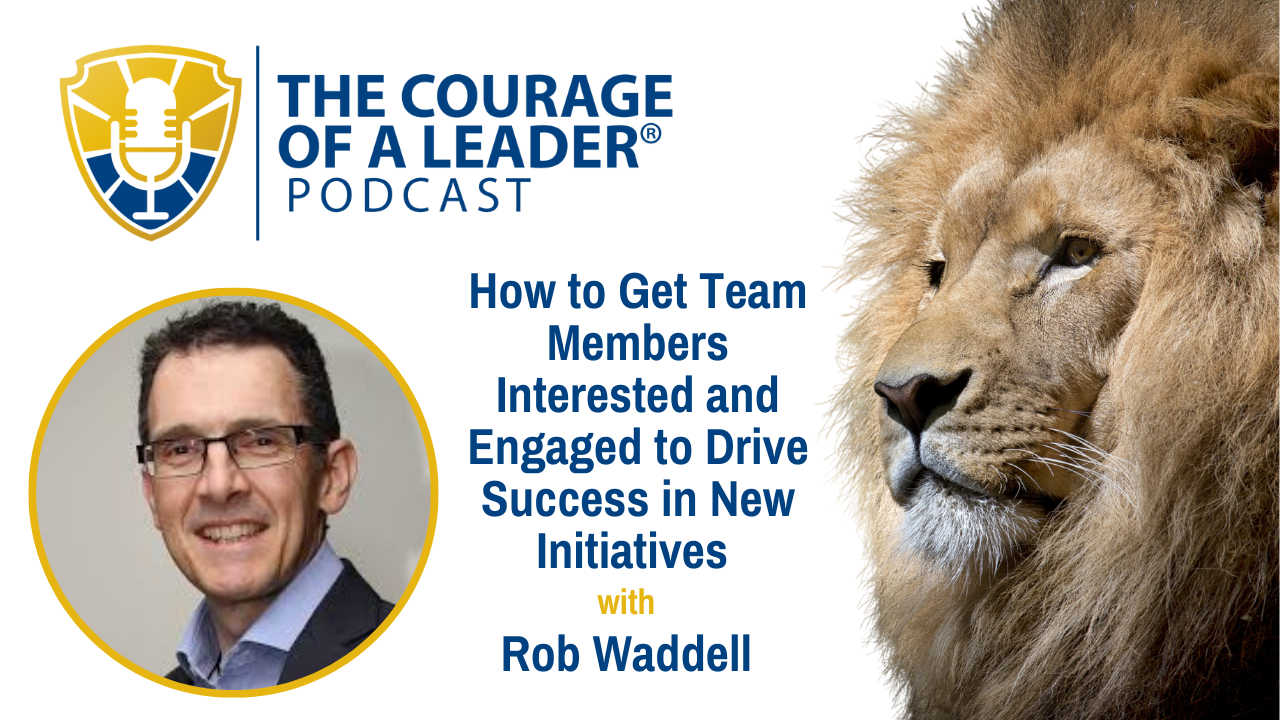
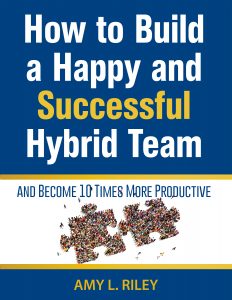
 A Summary of The Courage of a Leader® 4 Pillars
A Summary of The Courage of a Leader® 4 Pillars